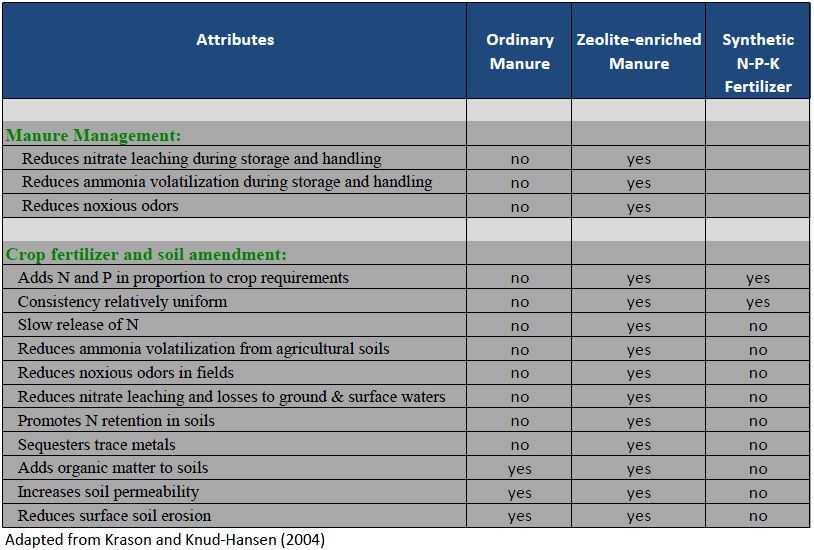Zeolite-enriched manure versus synthetic fertilizers
Farmers who do not utilize on-farm produced livestock manure for crop production must purchase synthetic fertilizers. Although there is a long tradition of using livestock manure for fertilizing field crops, the uncertainty of the manure’s nutrient content (due to nutrient losses during storage from leaching, runoff, and volatilization) and its variable consistency have made synthetic fertilizers an attractive, albeit expensive, alternative. However, manure composted with natural zeolites provides an even better alternative. Table 1 below summarizes the relative benefits to livestock manure management and field crop applications of applying zeolite-enriched manure versus ordinary (i.e., no processing) manure, composting manures without natural zeolites, and the use of synthetic nitrogen-phosphorus-potassium (N-P-K) fertilizers.
Table 1. Relative agricultural benefits of livestock manure enriched with natural zeolites compared with ordinary (fresh or aged) manure or synthetic N-P-K fertilizer.
This demonstrates that composting animal manures with natural zeolites can resolve both the environmental and economic concerns of CAFOs, and a major liability of manure disposal can be converted into a valuable natural organic fertilizer with a balanced N:P ratio and minimal N losses from the farm to the environment. Zeolites allow a greater percentage of the original feed nutrients to be incorporated into beneficial products. Recycling these nutrients within the farm promotes both agricultural and economic sustainability, a central concept behind integrated farming systems. Zeolite-enriched manure can also become a valuable marketable commodity for the farmer.

